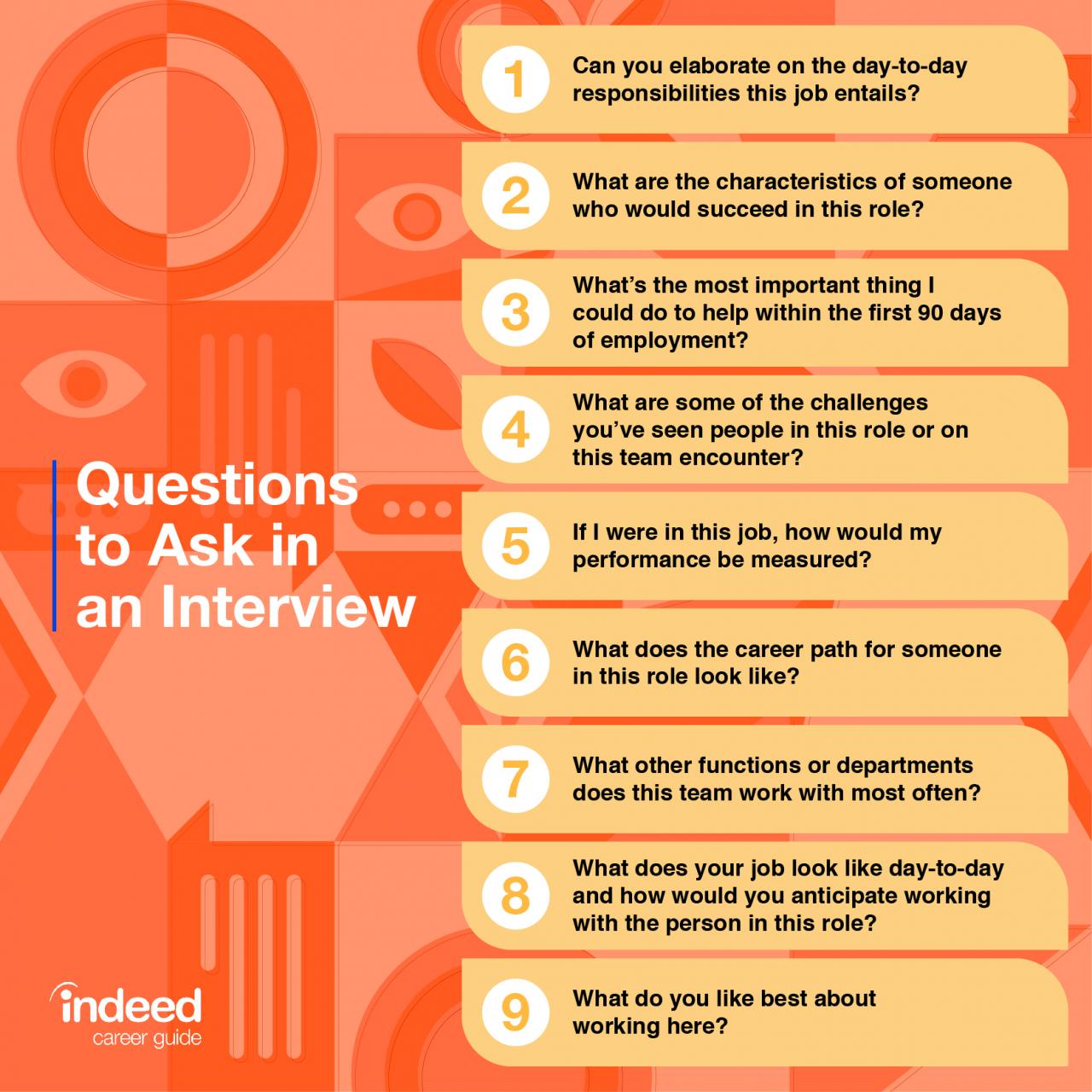Hiring the right candidate is crucial for any organization, and asking the right questions during an interview is key. Our comprehensive guide provides you with the best questions to ask an interview candidate, covering technical skills, problem-solving abilities, communication skills, cultural fit, motivation, and more.
Use these questions to uncover the true potential of your candidates and make informed hiring decisions.
Delve into our guide and discover the secrets to conducting successful interviews, ensuring you find the perfect fit for your team.
Best Questions to Ask an Interview Candidate
Interviewing candidates is a crucial step in the hiring process. Asking the right questions can help you assess their technical skills, problem-solving abilities, communication skills, cultural fit, motivation, and more. Here are some of the best questions to ask an interview candidate, organized by category.
Questions to Gauge Technical Skills
To assess a candidate’s technical abilities, you can ask questions that test their knowledge of specific technologies, programming languages, or software. For example:
- What are the key features and benefits of [specific technology]?
- How would you troubleshoot a problem with [specific software]?
- Can you explain the difference between [two similar technologies]?
Tailor your technical questions to the specific role and industry you’re hiring for.
Questions to Evaluate Problem-Solving Abilities
Problem-solving skills are essential for any job. To evaluate a candidate’s problem-solving abilities, you can ask questions that present them with a hypothetical scenario and ask them how they would approach solving it. For example:
You’re working on a project and you encounter a problem. What steps would you take to solve it?
You can also ask questions that assess their critical thinking and analytical abilities. For example:
- What are the pros and cons of [specific approach]?
- How would you prioritize a list of tasks with conflicting deadlines?
Questions to Assess Communication and Interpersonal Skills
Communication and interpersonal skills are important for any job that involves working with others. To assess a candidate’s communication skills, you can ask questions that require them to demonstrate their ability to listen, empathize, and communicate effectively.
- Tell me about a time when you had to communicate a difficult message to a colleague.
- How do you handle conflict in the workplace?
- What are your strengths and weaknesses as a communicator?
Pay attention to the candidate’s body language and non-verbal cues, as these can also provide insights into their communication skills.
Questions to Explore Cultural Fit and Values, Best questions to ask an interview candidate
Cultural fit is important for any organization. To assess a candidate’s cultural fit, you can ask questions that explore their values and beliefs. For example:
| Question | What it Assesses |
|---|---|
| What are your core values? | Values alignment |
| How do you handle working in a fast-paced environment? | Adaptability and resilience |
| What are your thoughts on [specific company value]? | Value alignment and understanding |
When asking these questions, be respectful and avoid bias. Consider diversity and inclusion in your interview questions.
Questions to Uncover Motivation and Drive
Motivation and drive are important factors in any successful employee. To uncover a candidate’s motivation and drive, you can ask questions that explore their aspirations, goals, and what drives them to succeed. For example:
- What are your career goals?
- What motivates you to work hard?
- Tell me about a time when you overcame a challenge to achieve a goal.
Evaluate the candidate’s answers for evidence of passion, commitment, and determination.
Situational and Behavioral Questions
Situational and behavioral questions are a great way to assess a candidate’s past experiences and behaviors. For example:
Tell me about a time when you had to deal with a difficult customer.
Use the STAR method to evaluate the candidate’s answers:
- Situation: Describe the situation you were in.
- Task: What was your task or goal?
- Action: What actions did you take?
- Result: What was the outcome of your actions?
Ask these questions in a structured and engaging manner.
Open-Ended and Thought-Provoking Questions
Open-ended and thought-provoking questions can encourage candidates to elaborate on their answers and demonstrate their critical thinking skills. For example:
- What are your thoughts on the future of [specific industry]?
- How would you improve [specific process or system]?
- What are the biggest challenges facing [specific organization or industry]?
Open-ended questions can be beneficial, but they also have limitations. Use them sparingly and be mindful of the time constraints of the interview.
Illegal or Inappropriate Questions
There are certain questions that are illegal or inappropriate to ask during an interview. These include questions about:
- Age
- Marital status
- Family planning
- Religion
- Political affiliation
Asking these types of questions can have legal and ethical implications. Avoid them and focus on questions that are relevant to the job.
Concluding Remarks

Remember, the best questions to ask an interview candidate are those that align with your specific hiring needs and company culture. By carefully crafting your questions and actively listening to the candidate’s responses, you can gain valuable insights into their skills, experience, and motivations.
Use this guide as a roadmap to conduct exceptional interviews and make confident hiring decisions.
FAQs
What are some common mistakes to avoid when asking interview questions?
Asking illegal or inappropriate questions, focusing solely on past experiences without exploring future potential, and interrupting the candidate’s responses.
How can I ask open-ended questions effectively?
Use phrases like “Tell me about a time when…” or “What are your thoughts on…” to encourage candidates to elaborate and provide specific examples.
What are the benefits of using situational and behavioral questions?
These questions provide insights into how candidates have handled specific situations in the past, giving you a better understanding of their problem-solving abilities and decision-making process.